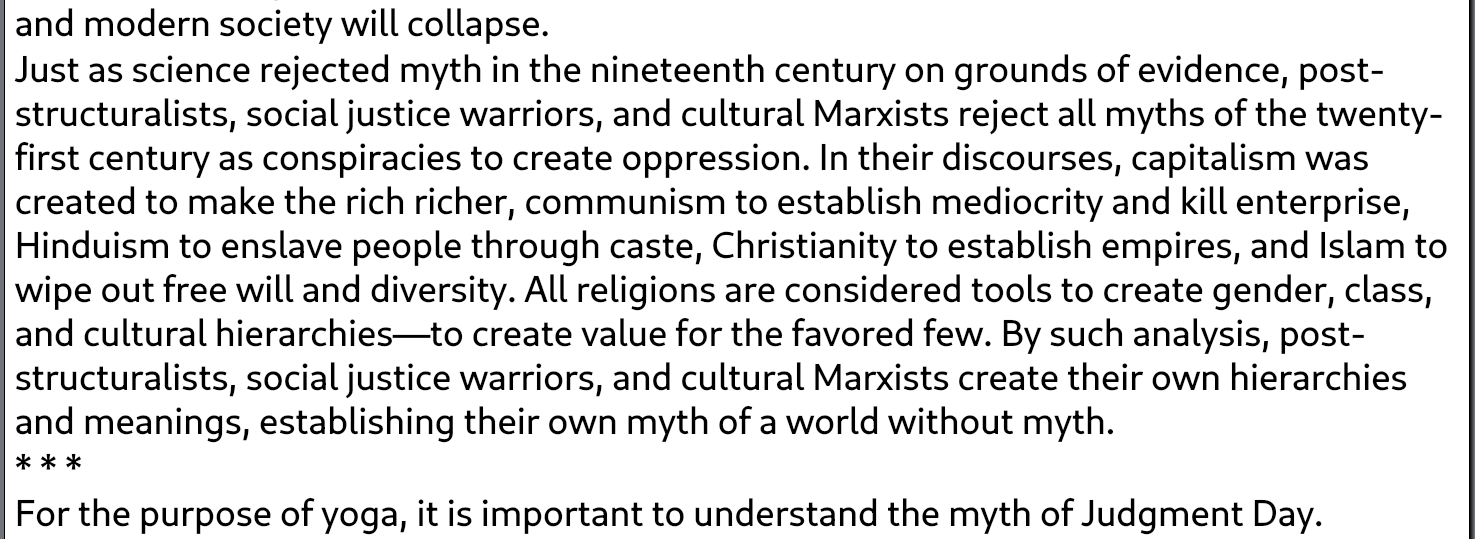the_dunk_tank
It's the dunk tank.
This is where you come to post big-brained hot takes by chuds, libs, or even fellow leftists, and tear them to itty-bitty pieces with precision dunkstrikes.
Rule 1: All posts must include links to the subject matter, and no identifying information should be redacted.
Rule 2: If your source is a reactionary website, please use archive.is instead of linking directly.
Rule 3: No sectarianism.
Rule 4: TERF/SWERFs Not Welcome
Rule 5: No ableism of any kind (that includes stuff like libt*rd)
Rule 6: Do not post fellow hexbears.
Rule 7: Do not individually target other instances' admins or moderators.
Rule 8: The subject of a post cannot be low hanging fruit, that is comments/posts made by a private person that have low amount of upvotes/likes/views. Comments/Posts made on other instances that are accessible from hexbear are an exception to this. Posts that do not meet this requirement can be posted to !shitreactionariessay@lemmygrad.ml
Rule 9: if you post ironic rage bait im going to make a personal visit to your house to make sure you never make this mistake again
view the rest of the comments


What do they say about Yoga and Judgement day?
As far as I can tell, nothing. It's just another tangent.
Like, this might be the worst book I've ever read.
You could've just begun with "different people need different forms of yoga..." You don't need to fucking discuss the difference between Abrahamic and Indic religions for three paragraphs, preceded by four paragraphs of "high school tier" philosophy about money being an illusion and other "myths"
I just wanna read about Yoga.
This is just a defence of casteism here. One belief is that people who have good Karma are reborn as Brahmins and those with bad karma are reborn in the "lower" castes. Thus they can justify casteism since those in lower castes deserve it by being evil in the previous birth.
I didn't even consider that. I just thought it was a meaningless tangent that should've been edited out. Turns out, it was wholly intentional.
The amount of brain worms right-wingers transmit in seemingly innocent books, videos etc. that people might stumble onto is legit scary.
interpreting Hinduism as wholly casteist is like interpreting Christianity based off all the preachers who think Black people are going to hell
Lingayatism and arguably Shaivism in general doesn't care about caste, and that's like 100 million+ people. Also they invented the protestant reformation 400 years before Martin Luther existed
You are correct that the thousands of beliefs and sects under Hinduism cannot all be tarred in the same brush as casteist but that specific quote is definitely a nod towards casteism and discrimination against disabled people.
except it's not "thousands of beliefs and sects", it's literally a couple that cover hundreds of millions of people in South India
it's like ignoring Evangelicalism or Catholicism
But North Indian Brahminical Hinduism is a cancer, yes